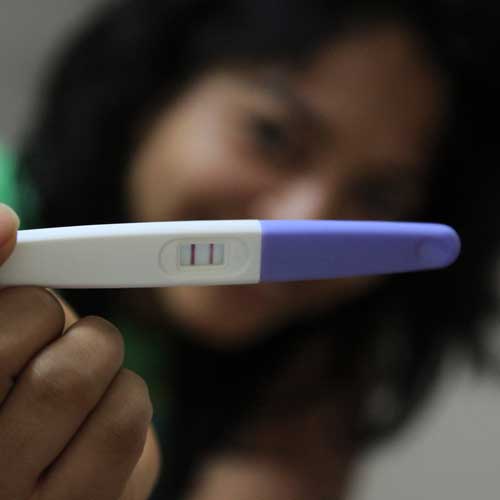The pregnancy test, we all know of it, some have dreaded feelings about it and others can’t wait until they can finally test their pregnancy!
So, when did the pregnancy test exactly come to be? What is one of the early pregnancy tests? How is the situation of Pregnancy test now, in the modern days?
Follow along as I take you through this journey in the world of pregnancy tests… !
The Early Pregnancy Test
One of the earliest written records of a pregnancy test (it was a urine-based pregnancy test to be precise) could be found in an ancient Egyptian document. An ancient document (Papyrus) described a test wherein a woman who might be pregnant could urinate on wheat and barley seeds over the course of several days.
When a woman urinated on the wheat and it would grow, it meant that it would be a female child. Now, if the Barley would grow, it meant that it would be a male child. Of course, if neither showed any signs of growth over the course of a few days than it would mean that the woman in question was not pregnant.
This, according to scholars, has been identified as perhaps the very first test to detect a unique substance in the urine of pregnant woman.
The Ancient Greeks also had their way of testing, for instance, Hippocrates suggested that if a woman had missed her period she should drink a water + honey solution at bedtime: if this would in turn result in abdominal enlargement with cramps then it was highly likely that the woman was pregnant.
New Methods of Pregnancy Tests
From the middle ages through the seventeenth century a new method was born to test pregnancy. This method consisted of using visual aspects of women’s urine to be able to determine whether she was pregnant or not. This actually became very popular in Europe and also brought with it the “Piss Prophets” who were able to determine a woman’s pregnancy by looking at the color of her urine.
In the nineteenth century several other theories came to be, for one it was determined that there should be a possibility that the pregnancy urine contained specific bacteria with which one could identify a pregnant woman.
Sadly, at this point, scientists were not able to create reliable tests based off this theory for women and many women were abound to stick to the basics and look at their own symptoms to determine whether they were pregnant or not.
The Beginnings Of Home Pregnancy Testing
It wasn’t until scientists began injecting mice, then rabbits, with urine in the 1920s that the first reliable pregnancy test became available. Several European laboratories found that pregnancy increases a hormone called human chorionic gonadotropin (hCG).
A pregnancy test comprised of nine steps could be purchased off the shelf and taken home by 1978. The test took two hours to complete. An assortment of compounds, including sheep red blood cells, were included in the kit, which also included medicine droppers, a test tube, and a vial of purified water.
A 97% accuracy rate was achieved for positive results, and an 80% accuracy rate was achieved for negative results. The age of home pregnancy testing had begun!
Modern Pregnancy Tests: Highly Effective and Accurate
Luckily for us, these days the modern pregnancy test are considered highly accurate, so much that you probably wouldn’t need to go to a doctor for a “second opinion”. Midstream pregnancy tests are easy to find in supermarkets such as Asda or Sainsbury’s . Best selling brands such as Clearblue and 1st Response are used and trusted by many. These newer pregnancy tests boast that they can detect even the slightest rise in pregnancy hormone, meaning that they can be sued up to 5 days before your period is due.
A study done by Elsevier between February 2010 and March 2011 resulted in data that provides for strong evidence that semi-quantitative home pregnancy tests could be highly effective in identifying ongoing pregnancy. According to the study, the next step would be for further education of women in these tests and if necessary counselling materials so that you can understand the clinical implications of your home test result and have more confidence in interpreting your test!
We agree with this and that’s why we have this website for you, to educate yourself and learn more about pregnancy, tests, and to educate you on the importance of it.
Photo Credit: “Dos rayitas” (CC BY 2.0) by Esparta
Zoom Health is a leading UK supplier of Home Health Tests and Earplugs
This post was originally published in 2015 and has been updated regularly since.





